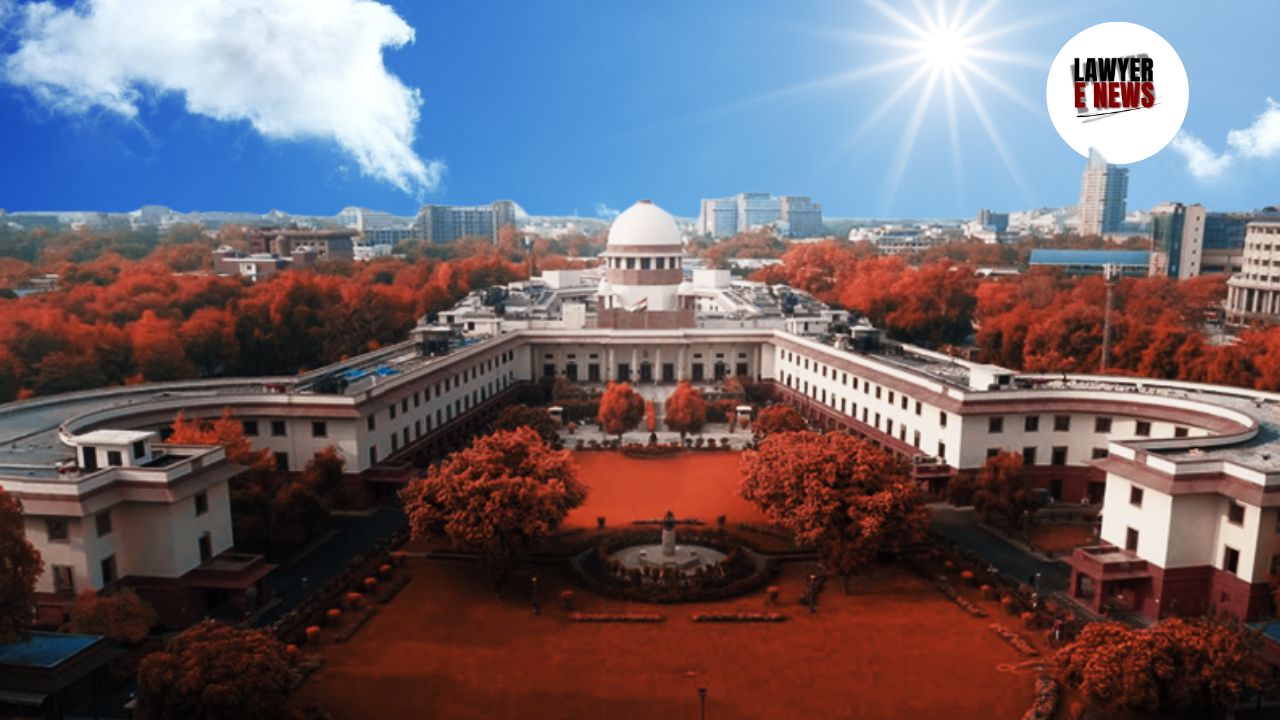-
by Admin
15 February 2026 5:35 AM



"Under Article 32 of the Constitution, this Court cannot declare a High Court judgment as illegal. The petitioners must pursue alternate remedies available under the law," stated the Supreme Court, dismissing the petition. Supreme Court of India dismissed a petition filed under Article 32 of the Constitution. The petition sought to challenge the Bombay High Court’s judgment dated July 25, 2024, which pertained to alleged encroachments and regularization of property. The Court clarified that Article 32 does not empower it to declare a High Court judgment as illegal and advised the petitioners to seek relief through appropriate remedies.
The three-judge bench, comprising Hon'ble Justice Vikram Nath, Hon'ble Justice Sanjay Karol, and Hon'ble Justice Sandeep Mehta, emphasized the scope and limitations of Article 32, reiterating that it is meant for the enforcement of fundamental rights and not for challenging High Court judgments.
“Article 32 Cannot Be Used to Challenge High Court Judgments”
The petitioners, who were residents of apartments allegedly constructed on government land, approached the Supreme Court under Article 32, seeking reliefs that included declaring the Bombay High Court’s judgment as illegal, directing surveys of their properties, and granting leasehold rights over the disputed land. The petitioners also sought protection from any interference in the enjoyment of their apartments.
The Court observed:
"The judgment of the Bombay High Court cannot be declared as illegal under Article 32. If the petitioners were not heard and are aggrieved by the judgment, the remedy lies in filing a recall application before the High Court or challenging the judgment under Article 136 of the Constitution."
The Court further noted that the petitioners had already attempted to challenge the High Court’s judgment through a Special Leave Petition (SLP) before the Supreme Court, which was dismissed on December 20, 2024. Additionally, an interlocutory application for modification of the High Court judgment was rejected on December 17, 2024.
Finality of High Court Decisions and Procedural Safeguards
The Court emphasized the principle of judicial finality, noting that the proper course of action for the petitioners would have been to exhaust the available procedural remedies, such as filing a review or recall application before the High Court or pursuing an appeal under Article 136.
"Judicial discipline mandates adherence to procedural safeguards. Article 32 is not a substitute for an Article 136 petition or review application," the bench noted.
Encroachment and Regularization: Relief Denied
The petitioners also sought directions to the state authorities to conduct surveys of their properties and regularize their apartments. They alleged that the apartments were constructed by a third party on government land. However, the Court found these prayers to be beyond the scope of the writ petition under Article 32, especially since the High Court had already adjudicated the matter.
The bench remarked:
"Any claim for regularization or leasehold rights must be pursued through appropriate remedies under applicable laws. This Court cannot intervene under Article 32 to grant such reliefs."
While dismissing the petition, the Supreme Court clarified that the petitioners were not precluded from availing alternate remedies available under law. The Court left it open for the petitioners to file a recall application before the Bombay High Court or a fresh petition under Article 136 of the Constitution. The dismissal of the Article 32 petition does not preclude these options.
The bench concluded:
"The writ petition is dismissed, leaving it open for the petitioners to avail such other remedy as may be available under law."
The Supreme Court's dismissal of the petition underscores the limited scope of Article 32 in challenging High Court judgments. The judgment reiterates that the appropriate remedies, including recall applications and appeals under Article 136, must be pursued by aggrieved parties. By dismissing the petition while allowing the petitioners to explore alternative legal avenues, the Court struck a balance between procedural discipline and the principles of access to justice.
Date of Decision: January 17, 2025
